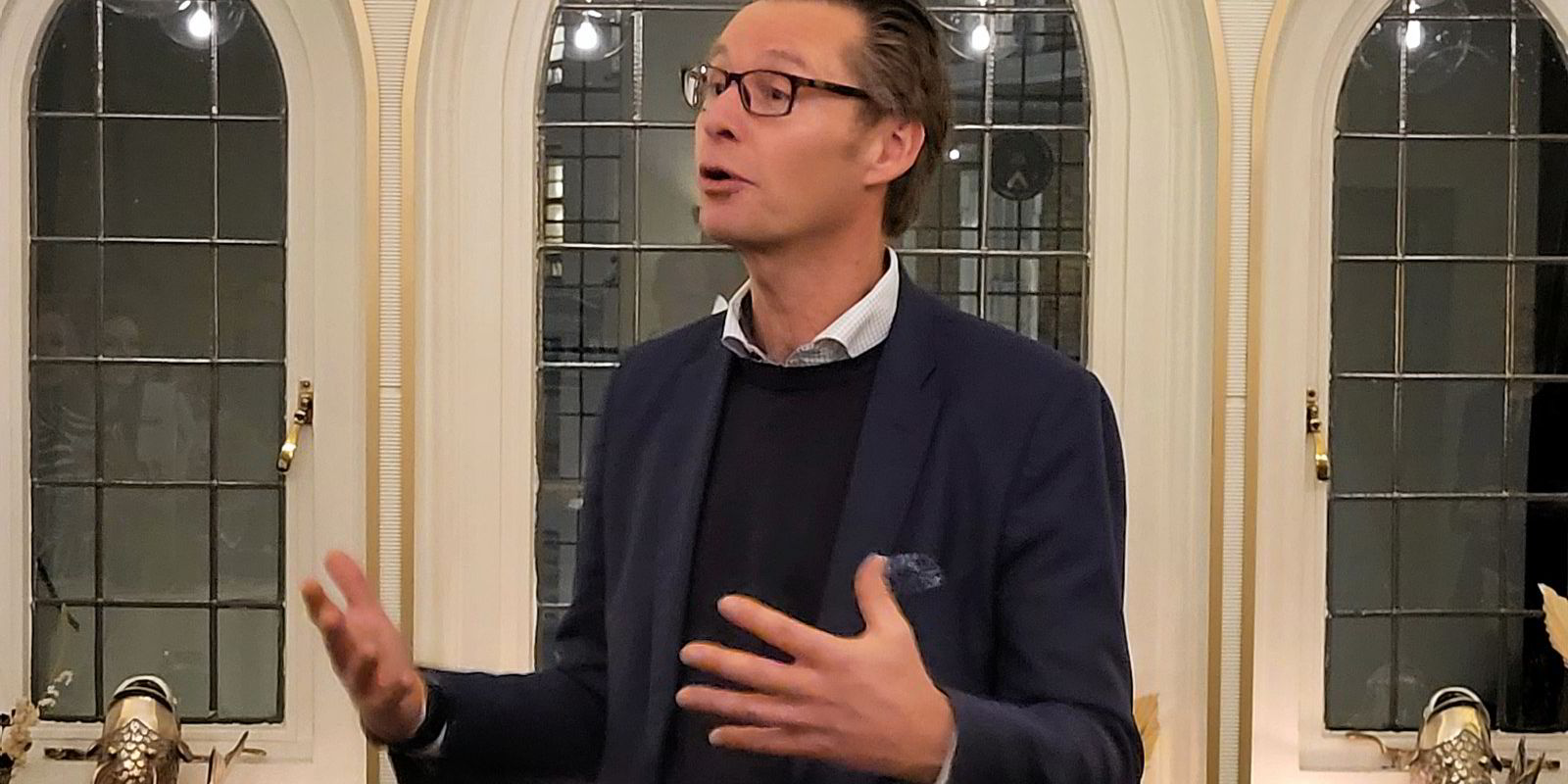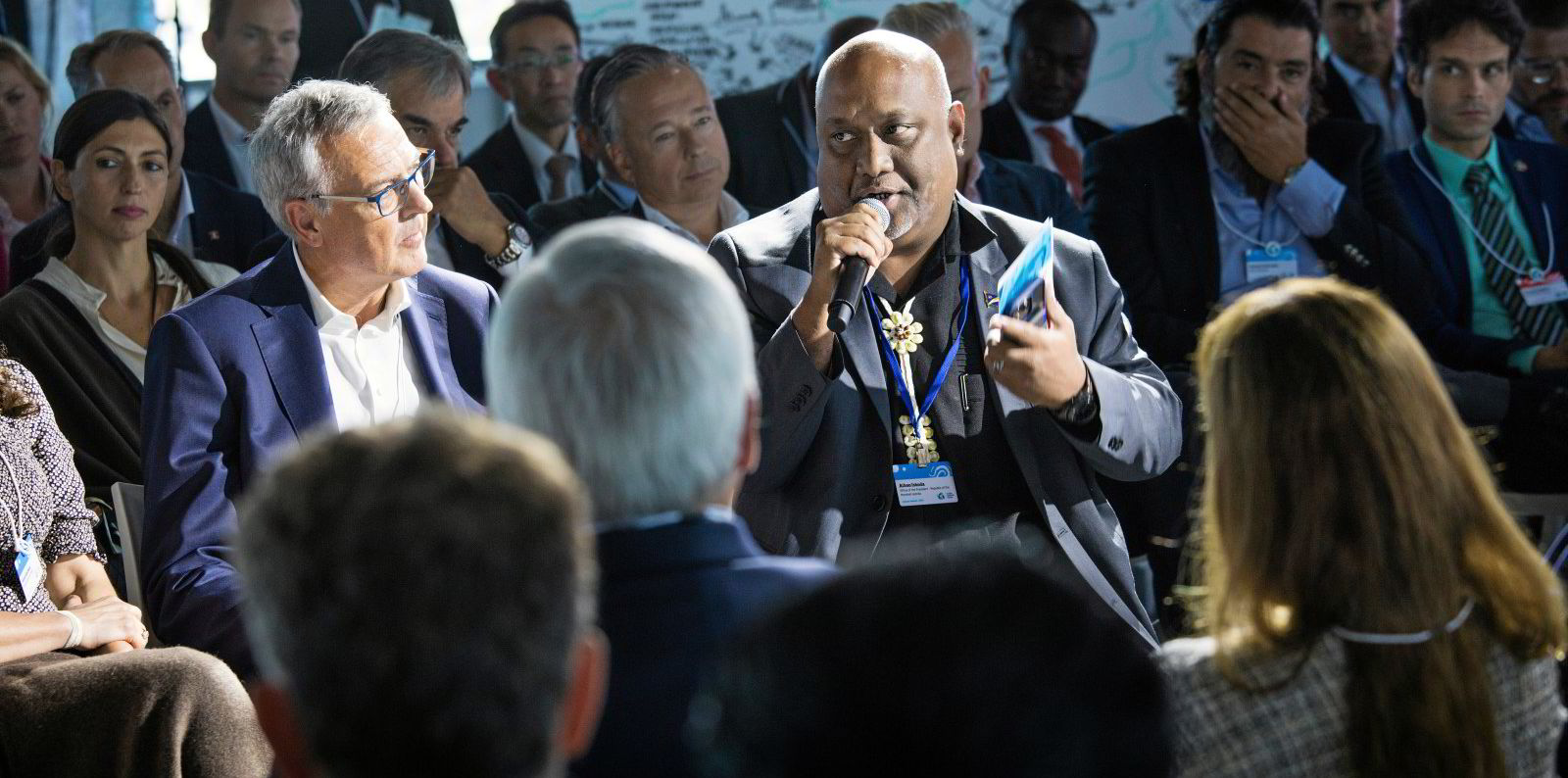DNV maritime chief executive Knut Orbeck-Nilssen has joined those saying that, though not perfect, the upcoming Carbon Intensity Indicator (CII) regulations are at least a start with making operational cuts to shipping emissions.
Orbeck-Nilssen told TradeWinds that it was difficult for the International Maritime Organization (IMO) to come up with a formula for all parts of the shipping industry.
“CII will help direct the focus on operating efficiency. I think it is going to help,” he said at a gathering in London.
Ship operators getting poor ratings for vessels will be incentivised to make improvements, he added.
He said he was not pre-occupied with current discussions at the IMO’s Marine Environment Protection Committee to raise shipping’s decarbonisation targets.
The real hurdle is the supply of zero-carbon fuels, he said, but there is still a lot that vessel operators can do to cut emissions in the meantime through efficiency measures. And he was confident many of the greener technologies and fuel will be available by the end of the decade.
Green corridors were a good way to test systems and technologies and learn from mistakes, he added.
His words echoed Bo Cerup-Simonsen, chief executive of Denmark’s Maersk Mc-Kinney Moller Center for Zero Carbon Shipping who told TradeWinds late last week that CII is in effect a three-year pilot scheme starting in 2023.
The aim is to develop and strengthen it in 2026 and that could lead to “meaningful and powerful” measures, Cerup-Simonsen said.
Orbeck-Nilssen also said that he saw three major tectonic shifts affecting shipping in the years ahead. Unpredictable markets and geopolitical shocks plus technological change were two of them.
But he said: “Decarbonisation is setting the agenda and defining the ESG revolution. It is affecting everything – not only the regulatory requirements but how companies are acting together,” he said.
It is not just an issue to be compliant but being able to document and explain emissions and how companies will make progress in cutting them, he added.
There would be “bumpy roads in 2023” in a world where conflict and tension are on the rise but Orbeck-Nilssen said he was confident shipping can manage them as it has in the past.





